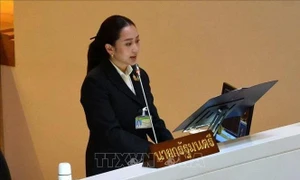
In a statement, Minister for Women Katy Gallagher said the new law would establish a new commission and deliver on recommendation 22 of ‘Set the Standard’. It also builds on measures to set up a Parliamentary Workplace Support Service (PWSS) introduced last year.
“The 2021 Set the Standard report laid bare the serious issues of bullying, sexual harassment and sexual assault at Parliamentary workplaces,” Gallagher said on Wednesday.
“We’ve been working hard to put the systems in place so that people can raise workplace complaints, and when complaints are substantiated, that both staff and parliamentarians are held to account for their behaviour.”
Since Labor took office in 2022, the government in conjunction with a Parliamentary Leadership Taskforce has invested in a cross-party effort to change the culture in the nation’s highest level of representation.
About $3.8 million has been committed to establish the PSC from 1 October 2024, overseen by the workplace support service, in the 2024-25 federal Budget.
Register now
“I thank members of the Parliamentary Leadership Taskforce and staff consultative group for their feedback and collaboration in good faith as we have prepared this legislation for introduction,” Gallager said.
“I look forward to working across the Parliament to pass this legislation as soon as possible.”
The minister noted that the IPSC will offer independent workplace investigation services and create a sanctions framework to enforce behaviour codes for parliamentarians, members of parliament and their staff (MOPS) and other people who work in Commonwealth parliamentary workplaces.
Sanctions available to the entity to impose will depend on whether the respondent is a current or former parliamentarian, MOPS employee or other parliamentary workplace participant.
Once the legislation is passed, Draft Behaviour Codes for MOPS agreed to in principle last February will be formally adopted.
These codes set out expectations for behaviour, including requirements to foster respectful and inclusive workplaces, and a prohibition on bullying, harassment, sexual harassment and assault, and discrimination.























